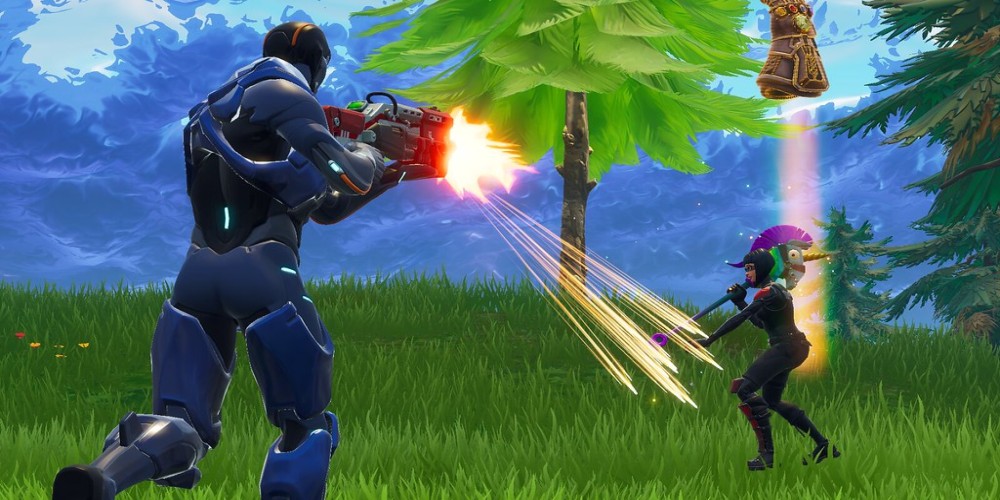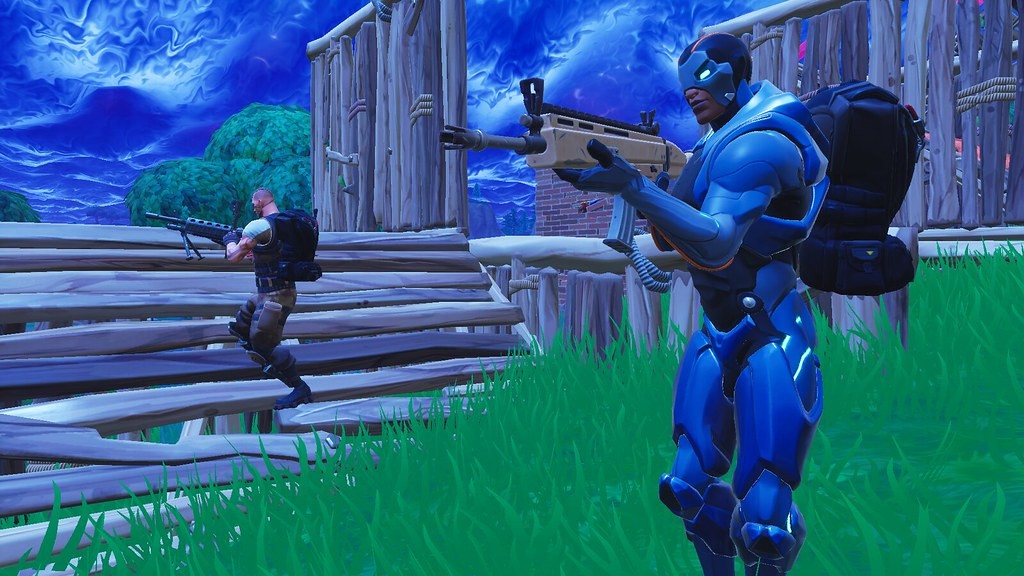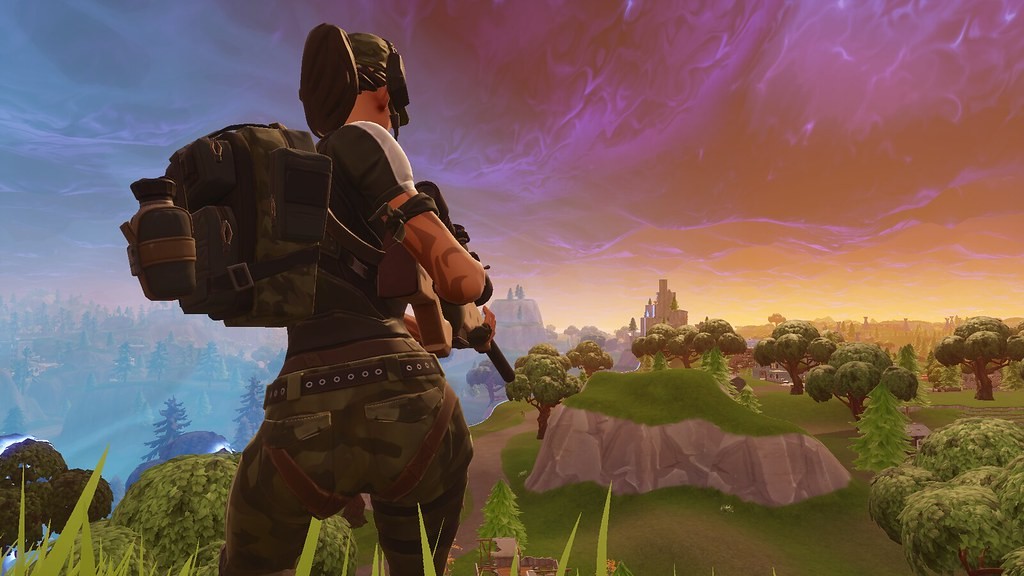Embarking on the Fortnite Frontier: Essential Strategies for New Players
- 07 Dec 2023
- 684

Welcome to the world of Fortnite, the online battle royale sensation that has captured the hearts and trigger fingers of millions of gamers around the globe. If you're new to the scene, the prospect of diving into this vibrant, ever-evolving battlefield can be as daunting as it is exciting. But fear not, rookie combatant! This comprehensive guide is designed to equip you with the fundamental skills and strategies needed to not only survive but thrive in the cutthroat arena of Fortnite. From mastering the basics of gameplay to outmaneuvering seasoned opponents, we'll journey through the core aspects that will transform you from fresh-faced novice to a formidable contender. So gear up, and let's embark on your path to becoming a Fortnite legend!
Understanding the Basics: Navigating the Fortnite Landscape

The first step to becoming a skilled Fortnite player is understanding the basics of the game. Fortnite is a free-to-play battle royale game where 100 players drop onto an island and fight to be the last one standing. The game combines elements of shooting, building, and survival, and it's essential to master all three to outlast your opponents.
Fortnite's map is divided into various locations, each with its unique layout and loot. Familiarizing yourself with the map is crucial, as it will help you make strategic decisions about where to land and how to navigate the terrain. Pay attention to the storm circle, which shrinks over time and forces players closer together. Staying outside the storm will chip away at your health, so always plan your movements with the circle in mind.
Building is a core mechanic of Fortnite that sets it apart from other battle royale games. You can gather materials by breaking down structures and use them to build walls, ramps, floors, and roofs. These structures can be used for defense, to gain a height advantage, or to traverse the map quickly. Practice building in a safe area until you're comfortable with the controls and can construct basic structures on the fly.
Combat in Fortnite involves a mix of shooting and strategic building. The game offers a wide array of weapons, each with its strengths and weaknesses. Learning how to aim and shoot accurately is a given, but combining your shooting skills with building can give you a significant advantage. For example, quickly throwing up a wall can block incoming fire, giving you a moment to assess the situation and plan your next move.
Lastly, Fortnite is a game that's constantly evolving, with new updates, weapons, and limited-time events regularly introduced. Keeping up with these changes can help you adapt your strategies and stay ahead of the competition. Don't be afraid to experiment with new tactics and playstyles, as flexibility is key to success in Fortnite.
Crafting Your Survival: Building and Resource Management

Once you have a grasp on the basics, the next crucial element to master is the art of building and resource management. In Fortnite, the ability to construct structures on the fly can mean the difference between an early exit and a top-ten finish. Efficient building begins with efficient resource gathering.
As you traverse the island, you'll want to harvest materials—wood, brick, and metal—by using your pickaxe on trees, walls, and other structures. Each material has its strengths and weaknesses; wood builds quickly but is less durable, while metal is the strongest but takes the longest to erect. Resource management extends beyond just gathering; it's about knowing when and what to build. In the heat of battle, a well-placed ramp can give you the high ground, and a quick wall can shield you from incoming fire.
However, overbuilding can deplete your resources and leave you vulnerable later in the game. It's crucial to strike a balance between having enough structures to defend yourself and conserving materials for critical moments. Another important aspect of building is editing your structures. You can modify walls to create windows or doors and platforms to create openings.
Mastering edits can provide you with better sightlines, escape routes, or surprise attack points on your enemies. Spend time in Fortnite's Creative mode or during low-pressure moments in a match to practice your editing speed and precision. Lastly, always be aware of your surroundings while building. Other players can use your structures to their advantage, and in some cases, you may need to abandon your creations if the storm circle shifts or if you find yourself outflanked.
Keep an eye out for opportunities to reuse enemy structures as well, as this can save you resources and time. Building is a skill that improves with practice, so don't get discouraged if it doesn't come naturally at first. As you play more matches, you'll start to develop an intuitive sense of when and how to utilize your building abilities to their fullest potential.
Combat Tactics: Sharpening Your Offensive and Defensive Skills

Survival in Fortnite isn't just about outlasting opponents—it's also about outfighting them. Combat in Fortnite can be fast-paced and intense, requiring both offensive and defensive skills. To improve your chances of winning engagements, you need to develop a solid foundation in both areas. Offensively, you need to be proficient with a variety of weapons. Each weapon type in Fortnite has a specific use-case, and understanding when to use each one is crucial.
Shotguns are excellent for close-quarters combat, assault rifles are versatile for medium-range engagements, and sniper rifles can take out opponents from a distance. Spend time practicing with each weapon type to understand its range, rate of fire, and damage output. Aim is important, but so is movement. Being a moving target makes you harder to hit, so get used to jumping, crouching, and strafing during fights. Use the environment to your advantage by taking cover behind trees, rocks, or the structures you build.
Always be mindful of your ammo count and reload times; it's better to retreat and reload than to run out of bullets during a firefight. Defensively, your building skills will be put to the test. Knowing when to throw up a wall or a ramp can give you precious seconds to heal, reload, or plan your next move. Learn to listen for audio cues, such as footsteps or the sound of enemy building, to anticipate an opponent's actions.
Positioning is also key in defense; try to keep the high ground whenever possible, as it offers a better vantage point and makes it harder for enemies to hit you. One of the most advanced defensive techniques is the "turbo build," which involves holding down the build button to continuously place structures. This can be used to quickly erect walls around you when taking fire from multiple directions.
However, remember that building too much can attract attention and drain your resources, so use this technique judiciously. Ultimately, the best way to improve your combat skills is through experience. Each match will present different scenarios and challenges, allowing you to refine your tactics. Don't be afraid to engage in fights, as each confrontation is an opportunity to learn and become a more formidable player.
Strategic Positioning: Choosing Your Battles Wisely

Knowing where to be and when to engage is as important as how well you fight or build. Strategic positioning can often be the deciding factor in whether you make it to the endgame or get eliminated early on. The first decision you'll make in a match is where to land. Popular areas with lots of loot will also attract lots of players, leading to early skirmishes. If you're still getting comfortable with combat, consider landing in less populated areas to gear up before engaging.
As the match progresses, keep a close eye on the storm circle. Anticipate where the next circle will be and start moving early to avoid getting caught in the storm. High ground is advantageous, as it gives you a better view of the surrounding area and makes it harder for enemies to sneak up on you. However, remember that other players will also be looking for high ground, so be prepared for a fight.
When moving across the map, use natural cover and avoid running in straight lines to make yourself a harder target. If you must cross open areas, consider building temporary cover or using launch pads to travel quickly. Be mindful of the sounds you make, as running, building, and opening doors can all alert nearby players to your presence. Choosing when to engage is another critical aspect of strategic positioning.
Sometimes, the best move is to avoid a fight, especially if you're not in an advantageous position or if you're low on health or resources. If you do decide to engage, make sure you have a plan. Consider flanking your opponents or waiting for them to be distracted by another fight before making your move. Lastly, be adaptable. No two Fortnite matches are the same, and the dynamic nature of the game means that even the best-laid plans can go awry.
Stay alert, keep an eye on your surroundings, and be ready to change your strategy on the fly. With practice, you'll learn to read the flow of the match and position yourself accordingly.
The Psychological Game: Maintaining Focus and Adaptability
Beyond the physical mechanics and strategies, Fortnite is also a psychological game. Maintaining focus, managing stress, and adapting to rapidly changing situations are essential skills that can elevate your gameplay. Fortnite matches can be intense, and it's easy to get flustered, especially in high-pressure situations. Learning to stay calm under fire will help you make better decisions and improve your reaction times.
One way to maintain focus is to set small, achievable goals for each match. Instead of aiming to win right away, focus on improving specific aspects of your gameplay, such as landing more accurate shots, building more efficiently, or surviving longer than your previous match. Celebrating these small victories can boost your confidence and keep you motivated. Another aspect of the psychological game is dealing with defeat. Losing is an inevitable part of Fortnite, but each loss is an opportunity to learn and improve.
Take a moment after each match to reflect on what went well and what you could do better next time. This mindset will help you turn setbacks into stepping stones towards becoming a better player. Adaptability is also crucial in Fortnite. The game is unpredictable, with random loot drops, a constantly changing map, and a diverse player base with varying playstyles. Being able to quickly adjust your tactics based on the situation is a valuable skill. This might mean changing your usual landing spot, trying out different weapons, or altering your playstyle to counter a particularly aggressive opponent. Lastly, don't underestimate the power of teamwork if you're playing in duos or squads.
Communicating with your teammates, coordinating strategies, and supporting each other can dramatically increase your chances of success. Even if you're playing solo, you can learn from observing other players, whether it's a clever building technique or a new combat strategy. Fortnite is as much about mental agility as it is about physical skill. By developing your focus, adaptability, and ability to learn from your experiences, you'll not only enjoy the game more but also set yourself on the path to becoming a top-tier player.